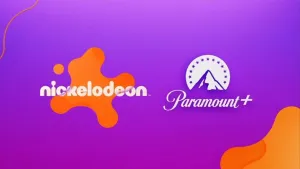The journey of The Orville has begun, and one of its most interesting crew members is a fully robotic science officer named Isaac.
Videos by ComicBook.com
Isaac is played on Seth MacFarlane’s new sci-fi comedy series by British actor Mark Jackson, who not only provides the character’s voice but actually performs within Isaac’s robot bodysuit.
ComicBook.com spoke to Jackson about The Orville, genre-blending, Star Trek, science fiction, and why fans should expect the unexpected from Isaac.
How does it feel to be part of what, by all accounts, is Fox’s biggest premiere since at least 2015, with Empire?
Mark Jackson: Yeah, it’s a huge pleasure. I was speaking to Seth yesterday, and the ratings for the second showing were really good, as well. So, it seems like things are going pretty well. Yeah, I mean, we all hoped it would be a big hit. A lot of work went into it. A lot of money went into it. It had a sort of buzz around it. So we were all hoping that it would come out well, and yeah, really pleased that it has.
Was there ever a moment of doubt? Not necessarily because of the actual product itself, but because, sci-fi on network television is always a gamble.
MJ: I’m a big fan of sci-fi anyway. So, I’m probably blinded to any possibilities of it not doing well. Because this is exactly the kind of show that I’d watch, even if I wasn’t in it. You know? But, yeah, I think we’re all aware that it’s something different to what’s on at the moment. That it was a mixing of genres that aren’t necessarily seen mixed together very much. So, yeah, I think there was a not necessarily doubt, but apprehension, which makes the success of it, so far, all the more wonderful.
One of the things that I’ve noticed in the reactions to The Orville, is even the people who really like it are a little bit taken aback by what it is. Because it seemed like Fox was selling it almost as a pure comedy. How would you describe what The Orville is and what it’s meant to be?
MJ: The Orville is a show set 400 years into the future. It takes our world now and transports it along a trajectory that is hopeful. That is inspiring. That allows us to imagine a future where we have no been in a nuclear holocaust. Where we are not having to eat our own children to survive, which is quite appealing, I think, to the audiences. Certainly to me, as a sci-fi fan. The Orville is there to provide a better future for us, I think.
It is a combination of comedy, and there’s a combination of drama, and sort of good old-fashioned classic sci-fi, dating back to Metropolis and [Isaac] Asimov and even some more modern writers like Iain M. Banks. So, it’s trying to pull together lots of different strands into something that can tell us great stories, but at the same time, take issues of today, and try and deal with them in a creative environment.
The third episode is significantly more serious than the pilot was. Given the episodic nature of the show, is the tonal difference between episodes by design, so that they can adjust the level of comedy to suit the subject matter? Or are they still calibrating to find a more consistent level?
MJ: I think that’s hard to say. I think everything in a script, and the whole idea of the scripts for The Orville is to serve the story that each particular episode is trying to tell. Yes, the third episode does get more serious. But, I think it’s true to say that on every episode there is something at stake. And to raise those stakes, you do have to invest in the drama. And to take it seriously. That does not mean, of course, that there isn’t light relief. Seth is very clever in the way that he’s managed to get comedy into situations where you wouldn’t expect there to be comedy. Which I think gives this show a particularly unique flavor, which is nice. But yeah, I think the episodic nature, as you said, lends itself to having a completely different experience every week. Which, I don’t think is that usual anymore. And it’s quite nice for us to have that opportunity to watch something like this now.
Playing Isaac

Isaac seems to fit into “the other” archetype that Spock and, in the Next Generation, Data filled. Is that how you see the character, as a comedic take on that archetype, or do you have a different idea in your mind?
MJ: Well, you know, Isaac definitely stands on the shoulders of all these fantastic characters. It was important to us to really highlight the fact that he’s alien. He’s not human-made. He is completely alien and from a planet that largely lies outside of the union, which is, as you know, the conglomeration of planets and worlds that make up this sort of UN of species in the future.
So, yeah, there’s an element of the unknown about Isaac, which was important to get across. I mean, as the season goes on, he becomes more and more of a presence in each episode. Episode eight is particularly Isaac heavy, and we do start to learn a lot more about him, and, it’s often quite surprising. So, I think, where he does, as I said, stand on the shoulders of these great characters, he also goes off in a slightly different direction.
Is there anything else that you can tell us about what that episode entails?
MJ: Every of the main sort of characters catches an episode in this season. I can’t give too much away, but it’s safe to say we learn a lot more about him and we see relationships develop between him and some of the other characters on the show, which is very insightful for an artificial life form.
Any chance we’ll get to see Kaylon, his home planet?
MJ: I believe there were plans originally for this season to see Kaylon, but I think they might be pushed to a possible second season. So, we’re not seeing Kaylon this time, but we’re going to learn a lot more about it.
Isaac had an interesting introduction where Mercer calls him out as, “Hey, your whole species is very racist, right?” Was there any concern, especially given the level of the social and political discourse these days, that having a character on your show that somebody calls out as straight up racist might be taken the wrong way by viewers?
MJ: It’s very indicative of Seth’s comedy that it was out there to say, but, of course, it’s important to remember that Isaac doesn’t think he is racist, and as it turns out, he isn’t, of course. That’s just the sort of slander that is made against Kaylon, because no one knows very much about them, really. But it’s also a very human reaction, to the Kaylon, which is quite interesting. You know that what the humans perceive Kaylon to be is in no way how Kaylon perceive themselves to be, and in a way, they aren’t. So, through Isaac’s interactions with the crew, we start to realize where human limits lie. You know, like with all great sci-fi, it’s about discovering what it is to be human, and when you’re faced with an artificial life form, that tends to come across quite clearly.
Can you talk a little bit about what it’s like being in that suit? Is there a particular challenge you’ve noticed that you’re trying to overcome with dealing with that?
MJ: The suit actually wasn’t bad at all. The studios we film on, the sound stages, they pump air conditioning in. So, whereas all the cast were sitting around in coats, I was really temperate in my suit and was quite happy. I think some actors might have an issue with, I don’t know, perhaps a claustrophobia or so, but luckily, I don’t. It’s quite space age, that suit. They put a lot of man hours into making it very comfortable and deluxe. So, it was quite enjoyable, actually, and any restrictions the suit did provide helped to come up the way that Isaac moved.
Talking Trek

You mentioned you’re a fan of sci-fi. Is it safe to say that you were a Star Trek fan going into this?
MJ: Yeah, absolutely.
Seth MacFarlane has been pretty open that this is a kind of homage and a love letter to Star Trek, which he’s always been a big fan of. Is Star Trek used as a point of reference much while you’re actually filming the show, or is that more of something that was in the background for the concept, and now it’s more about, “Well, how do we make this our own thing?”
MJ: Yeah, I mean, oddly, Star Trek wasn’t really talked about much on the set at all. I suspect in the development phase, as you say, this show is a love letter and a homage to Star Trek, particularly Next Generation and Voyager. And those shows are very alive in terms of our conscious at the moment. Yeah, I think that, obviously, in development, those things were considered. I mean, obviously, visually, the show draws on those wonderful series of Star Treks.
But I think, tonally, it was quite important to move away from that. You know, Orville picks up where Star Trek doesn’t go. So, going into what is often considered mundane, but the casual and normal lives of the crew, was taking it a big step further than it was for Star Trek. And I think that was the main focus, to keep on going in that direction.
MacFarlane recently mentioned that he’s lining up some Star Trek cameos for The Orville. Given that you are a Star Trek fan yourself, do you have your own personal wishlist of Star Trek actors you’d like to share a scene with if you had the chance?
MJ: Yes. And without giving too much away, I already have. So, I’m very happy about that and it’s very exciting, and we’re very privileged to have these fine actors working with us. There’s a few more I’d like to see, but if I said their names, then you’d know that they’re not in the season, so I won’t. I wouldn’t want to spoil the surprise for you guys.
Do you believe that there is room in people’s TV schedules for both Star Trek: Discovery and The Orville? Do you think they can coexist happily?
MJ: Well, let’s face it. Who’s got time to watch all the shows nowadays? So, I don’t know. That goes out to the individual, but yeah, I’d love to watch it. I need to get CBS All Access because I don’t have that. But yeah, I think so. I think the shows are going to be significantly different. I’ve seen the trailers for Star Trek and it looks fantastic but very different to The Orville, which is wonderful. I mean you can watch both in one night and feel like you’ve had a nice sort of smorgasbord of sci-fi.
What’s interesting is that, to some fans, The Orville resembles classic Star Trek more than the actual Star Trek show does.
MJ: Right, I’d say yes it does. It certainly harks back to the original series more than it seems that the new Star Trek does. But it does look very cool. It looks very sexy, and I’m looking forward to it.
Are there any last comments or notes you’d like to leave fans with?
MJ: Keep watching and expect the unexpected.
The Orville airs Thursdays at 9 p.m. ET on Fox.








